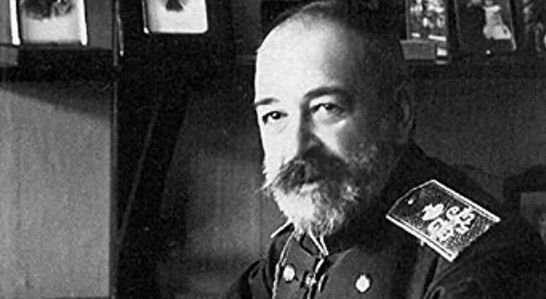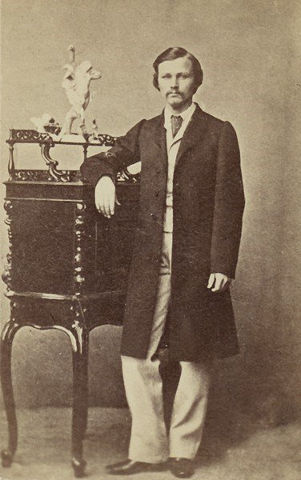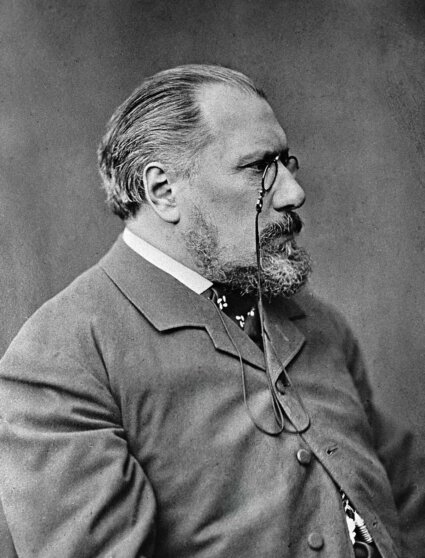The culture of cancellation is perceived by many as a newfangled Western trend and something inorganic, and in relation to Russian culture, as thoughtless copying or even tracing on the verge of a cargo cult. But this is not so: in fact, the culture of cancellation as a phenomenon lies at the core of Russian culture itself – at least, classical literature.
Beginning with Radishchev, Griboedov and the Decembrist poets, Russian literature has almost always existed in two dimensions: aesthetic and political. Perhaps the best explanation of this purely Russian phenomenon was Dmitry Svyatopolk-Mirsky, a researcher of Russian literature (the son of the Minister of the Interior, who was dismissed after Bloody Sunday). In his opinion, the parliament in Russia appeared very late – only in 1906. And all this time, literature, and especially literary criticism, was used as a space for political struggle – in fact, as a substitute for the State Duma.

In such optics, everything that was done and said later by the Soviet school of criticism, the then rulers of thoughts like Chernyshevsky, Dobrolyubov, Pisarev and others, becomes much clearer. In fact, they were political bloggers, as we would say today. To develop this metaphor, imagine such a level of censorship and lack of freedom that the oppositionists in Russia would not have to record videos with investigations into the corruption of senior officials, but to make reviews of books like “Petrova in and around the flu” or “Zuleikha opens her eyes” or even, what the hell is not joking, "Summer in a Pioneer Tie" – solely in order to criticize the government in Aesopian language and speak out on the current agenda. It was in this reality that Russia lived for decades.
When the nihilists in Turgenev or Dostoevsky compare Pushkin to chemistry or boots and talk about the "uselessness" of Alexander Sergeevich, this is exactly what it is about. Indeed, above all, Pushkin's aesthetic poetry is poorly suited to political struggle. More precisely, one can find too many contradictions there – for example, the ode "Liberty" on the one hand, and the poem "Slanderers of Russia" on the other. And none of them constitutes the foundation of his lyrics, because this foundation lies in the general idea of beauty.
But these are literary nihilists, but in reality everything was even more interesting.
Bazarov from Fathers and Sons had several prototypes, but the main one, of course, was Nikolai Uspensky. He grew up in a family of a priest, starved as a child, drank, was beaten, went on foot to Moscow, studied to be a doctor, quit, was fond of chemistry.
Chukovsky, who spent several years studying Ouspensky's life and work, writes:
“Turgenev, like Leo Tolstoy, was so incapable of portraying a commoner that even Bazarov came out too lordly in him. Ouspensky was poorer, more homeless, meaner, and his fate was tougher and bitterer.
At the time of the release of Fathers and Sons, Nikolai Uspensky was a fashionable 23-year-old writer who wrote a couple of radical stories about the wretchedness of peasant life, as if in defiance of the pastoral Notes of a Hunter by the same Turgenev.

On the eve of the great reforms (and, above all, the peasant reform), this is exactly what the public was waiting for. The bitter truth about poverty, drunkenness and bestiality, and the philanthropic stories of Turgenev, who were only 10 years old, were a thing of the past. Ivan Sergeevich, like all people of the forties (those same "fathers"), was called a man of the past. Not like the youth.
But did the public want it? No, not at all. It was directed by those same literary critics (aka “political bloggers”) who wanted to emphasize to what bestial state the peasants had been brought by the feudal lords. As a result, they put in the first place stories like those written by Nikolai Uspensky. The stories, to be honest, are so gloomy and blackish that, against their background, Balabanov's films may seem like pink comedies.
Left-wing criticism, which kept “confusing” literature with politics, after the peasant reform dramatically changed its vector
But only a couple of years passed, and Nikolai Uspensky was out of work. Went out of fashion and went downhill. He wandered and mercilessly drank. Everywhere he carried with him a stuffed crocodile and a hurdy-gurdy. In taverns for a couple of coins, he told the biographies of various Russian writers and poets. It is known that he took the least money for Pushkin. And in the end he killed himself – in a drunken delirium.
Now only a few specialists remember him. And he could be one of the great names in the pantheon of Russian literature, and schoolchildren would write essays based on his books for decades. What went wrong?
What went wrong was that left-wing criticism, which “confused” literature with politics, abruptly changed its vector after the peasant reform. Now we need, on the contrary, those who called for repentance before the people, to sing of the people and go to the people. But Nikolai Uspensky did not catch this change of "weather" – and continued to write his "darkness".
The editors and critics of literary magazines at that time did indeed have enough power to "cancel" a person – completely, like Nikolai Uspensky, or at least partially – like Nikolai Leskov.
The editors and critics of literary magazines at that time did indeed have enough power to "undo" a person.
It is today that Leskov is known to every schoolchild as the author of the story of Lefty, who shod a flea, and in general as a harmless popular popular author. Initially, Nikolai Leskov was a daring and provocative right-wing writer and publicist.
So, after the fires in St. Petersburg in 1862, an article by Leskov was published in the Severnaya Pchela newspaper, where he mentioned rumors that revolutionary-minded students, as well as Poles, committed arson, and demanded that the authorities confirm or refute them. A huge scandal erupted. This note was perceived by left-wing critics as a denunciation, and Leskov himself (then he was 31 years old) was accused of almost working for the Third Department. Did you manage to cancel it? I guess, yes. The editors of the newspaper had to urgently send their unlucky correspondent on a long business trip, during which he traveled all over the western regions of the empire, and then even visited Paris.

In 1864, the novel Nowhere was published, in which a nihilist commune with very frivolous morals was evilly and caustically portrayed. At the same time, most of the characters depicted were easily recognizable among leftists: for example, the head of the Beloyarsk commune was written off from the writer Sleptsov. The left press continued to cancel Leskov. He became close to the right-wing magazine – Katkov's "Russian Messenger" – and continued to stick to his line. In 1870, another of his novels, On Knives, was published, in which he continued to mock the revolutionaries, portraying them, in essence, as criminals.
After this novel, the cancellation of Leskov reached such a degree that even people from his alleged camp – his same publisher Katkov or "ally" Dostoevsky – retreated from him.
It was after this that Leskov fell silent. And he returned already with stories about the saints and the righteous, with popular tales about the people. And already in this "harmless" quality, he was admitted to the national canon.
Leskov was silent. And he returned already with stories about the saints and the righteous, with popular prints about the people
If these two stories of cancellation are not enough for you, then you will certainly appreciate another one – leftist critics from the 19th century were so influential that they could cancel pieces of novels even many decades after their death. In 1938, the novel The Gift by Vladimir Nabokov began to be published in the emigrant magazine Sovremennye Zapiski, but when they reached the fourth chapter, the following message appeared instead:
"Modern Notes" No. 67, p. 69 (Paris, 1938). The first publication of the novel “The Gift” by V. Sirin (Nabokov) with the explanation: “Chapter 4, consisting entirely of the Life of Chernyshevsky, written by the hero of the novel, was omitted with the consent of the author. – Ed.
What is this chapter? It is rather a biographical feuilleton, caustic and offensive (like Leskov's, only, perhaps, more subtle and talented) about the main "political blogger" of Russian revolutionary writers – about Chernyshevsky.
For Nabokov (more precisely, for his hero, but there are definitely no differences here), Chernyshevsky is not just a personification of creative mediocrity, but also Lenin's favorite author. Through the mouth of the hero, Nabokov pronounces the obvious: Chernyshevsky lives in a world of politics and utilitarianism, for him there is no aesthetics, and it is this view of literature that leads to the Bolshevik revolution and mass repressions.
By the way, according to the plot of the novel, this text is not published because of its “offensiveness”. It turned out to be a self-fulfilling prophecy. The fact is that the magazine was also moderately left-wing, and the editors of Sovremennye Zapiski refused to publish the inserted text about Chernyshevsky, citing approximately the same arguments that Nabokov himself predicted in the novel (“There are traditions of the Russian public that an honest writer does not dare to sneer").
Nabokov himself said about this:
"A lovely example of how life is forced to imitate the very art that it condemns."
I think if Nabokov lived today, he would urge not to argue to the point of hoarseness about the culture of cancellation – it has always been in Russian literature – but to continue to look for beauty where beauty can be found. After all, the point is not to prove that Pushkin is better than boots, but to avoid such comparisons at all.


